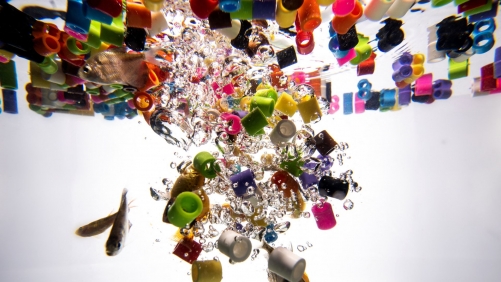EU countries back stricter rules to curb microplastics pollution
AFP | Paris, France
Email : editor@newsofbahrain.com
EU member states yesterday approved plans to combat plastic pollution by implementing stricter regulations for companies using plastic pellets, known as nurdles. These tiny, lentil-sized pellets, made from fossil fuels, serve as the base material for most plastic products, including car bumpers and salad bowls.
The pellets often spill into the environment during handling and transport, polluting beaches and oceans. To address this issue, the EU's 27 nations have agreed to adopt new rules to minimize plastic pellet losses. The legislation, proposed by the European Commission last year, aims to tackle microplastic pollution, which poses significant environmental challenges.
Negotiations between EU countries and the European Parliament to finalize the text are expected to begin early next year.
"The new rules, the first of their kind in the EU, will help companies minimize plastic pellet losses, contributing to the fight against microplastic pollution, which knows no borders or boundaries," said Aniko Raisz, Hungary's minister of state for environmental affairs. Hungary currently holds the rotating EU presidency.
The proposal requires operators handling pellets within the EU to implement measures to reduce pellet spillage. Maritime transport companies will face specific obligations, such as ensuring high-quality packaging and providing detailed technical information about the cargo.
While most sectors will have two years to comply with the new regulations, the maritime transport sector will be granted three years to adapt. Some EU nations had advocated for excluding maritime transport from the legislation, suggesting that such rules should be developed by the International Maritime Organization. However, the sector remains included in the EU's plans.
According to European Commission data, up to 184,000 tonnes of pellets—equivalent to 20 truckloads daily—are released into the environment across the EU annually due to mishandling. These new measures are intended to significantly reduce this figure.
Related Posts

